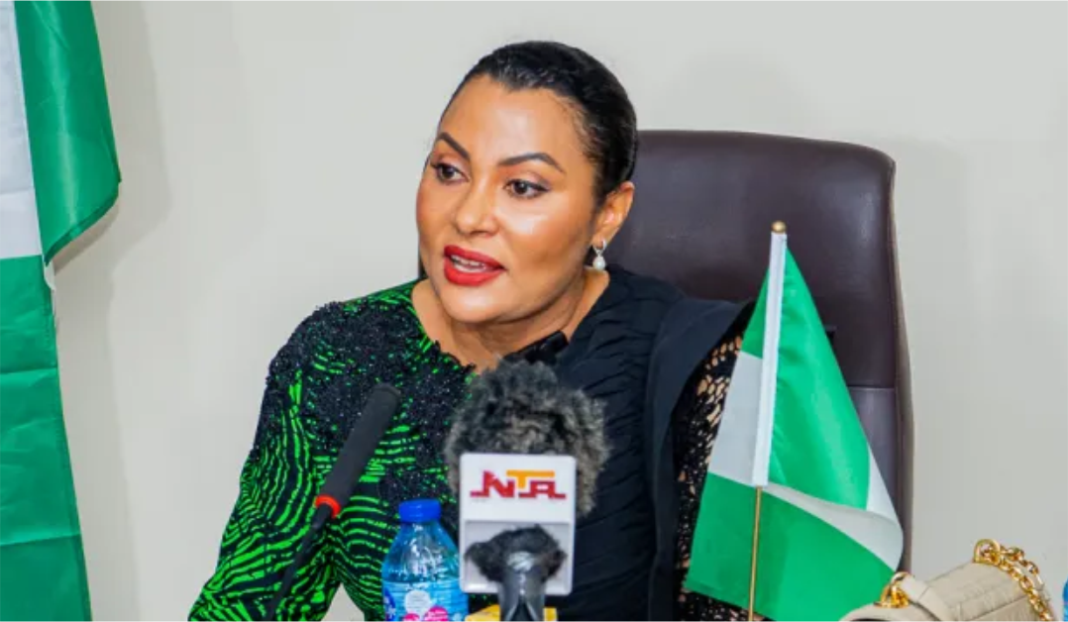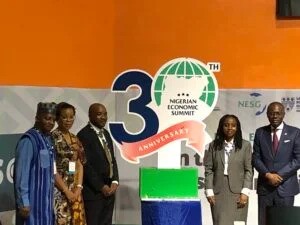News
Africa50 invests in infrastructure worth $6.6bn in 6 years- AfDB
AFRICAN Development Bank, AfDB, says Africa50 has invested over 6.6 billion dollars in critical infrastructure in its six years of being in operation.
The AfDB’s President, Dr Akinwumi Adesina, said this in a statement released at the Africa50 Infra Forum and General Shareholders Meeting in Lome, Togo.
Africa50 is an investment platform established by African governments and the AfDB to mobilise financing for mega infrastructure projects with significant development impact.
The AfDB’s president chairs the Africa50 Board of Directors.
According to the statement, the fund is the first private vehicle infrastructure platform inaugurated by Africa50.
“It will catalyse further investment flows to invest in the development of critical infrastructure across the African continent.”
Adesina said Africa50 was rapidly playing a strategic role in closing Africa’s infrastructure financing gap, from energy to transport and logistics to digital infrastructure.
Adesina said: “Africa50 is doing amazing work as an institution, developing projects to bankability and financing projects.
” At the heart of our work is to help close the 68 to 108 billion dollars annual infrastructure financing gap for Africa.”
On financial resources for Africa’s development needs, Adesina said the reallocation of International Monetary Fund Special Drawing Rights (SDRs) meant more funding to support all the regional development banks in Africa as well as Africa50.
He said that the resources would unlock additional resources to finance climate change mitigation and adaptation, infrastructure for agriculture, transport, digital, airports, water and sanitation, education, as well as health.
The AfDB boss said the added resources would support African countries like Togo, where AfDB had invested heavily and was the largest development partner supporting the country’s agricultural sector.
Adesina said the bank invested more than 32 million dollars to support inclusive growth in the sector, helping to reduce the importation of key food commodities like rice, maize, and soybeans.
Speaking at the Africa50 Infrastructure Acceleration Fund signing event, Adesina said the time to change the investment narrative on Africa, was now.
” It is remarkable and unprecedented to have 17 African institutions participating in such a transforming initiative to invest in an African infrastructure fund.
”With the Fund, we are positioning the Africa50 Group to play a lead role in helping to tap into the more than 98 trillion dollars of global assets under management.
”The African Development Bank is investing 20 million dollars in equity in the African Infrastructure Acceleration Fund,”he said.
According to the president, there is much that can be done to close Africa’s infrastructure gap.
Adesina said: “Since most of Africa’s infrastructure is yet to be built, there is an excellent opportunity to build it green and to green the existing infrastructure.
“Africa’s future is green, so let’s green all of Africa’s infrastructure. Together we will make the continent the centre of green infrastructure in the world.
”Africa50, AfDB and our partners will make this a reality.
”Africa50 has attracted support from across Africa and today has 31 African countries as shareholders and three African institutional investors,”he said.
Togolese president, Faure Gnassingbé, said, there was a huge need for infrastructure across the continent, saying ” this is indeed a condition for development”.
Gnassingbé said without roads, bridges, airports, hospitals, schools, power, communication networks, and water supply, there was indeed no possible development in Africa.
The President said infrastructure issues laid at the heart of his country’s development roadmap.
“Togo has assets, but to take advantage of them, we need to invest in infrastructure.
“The public sector finances more than 90 per cent of infrastructure investment, but public spending will not be enough, the involvement of the private sector is essential.
”Projects must be bankable to appeal to private investors and without a stable and consistent regulatory environment, it will not be possible to attract private capital,” Gnassingbé said.
Africa50 Chief Executive Officer (CEO) Alain Ebobissé said his institution was ready to take on the challenge of creating the infrastructure needed to grow the African continent.
“For instance, with the support of the AfDB, Africa50 has developed the first programme of asset recycling in Africa.
“And today we are happy to welcome Togo, Gambia, and Zimbabwe as the first countries to join this programme with emblematic assets.
”Asset recycling is an innovative initiative for governments to monetise existing infrastructure assets through a concession to the private sector with funds received being reinvested in other priority projects,”Ebobissé said.
The chief executive officer explained that Africa50’s investment over six years covered 21 national and regional infrastructure projects in 22 countries.
“We understand the expectations of the African population. This is why we must act with a real sense of urgency,” Ebobissé added.
The News Agency of Nigeria (NAN) reports that the Togolese President, Faure Gnassingbé and some prominent African and global institutional investors, among others, attended event.
Some investors also used the opportunity of the meeting to sign subscription agreements and letters of intent to commit funds to the 500 million dollars African Infrastructure Acceleration Fund.
News
Application deadline for management of Nigeria’s $10bn Diaspora Fund extended


The Nigerian federal government has shifted the application deadline for companies interested in managing the $10 billion Diaspora Fund.
Minister of the Federal Ministry of Industry, Trade and Investment, Doris Uzoka-Anite, disclosed this in a circular on Thursday in Abuja.
Accordingly, the deadline for May 6 has been shifted to May 13, 2024.
The minister urged prospective applicants to utilise the extra time to complete their submissions, ensuring they are thorough and competitive.
She stressed that the extension is designed to allow stakeholders additional time to adequately prepare their applications following the guidelines established for the fund.
“The Federal Ministry of Industry, Trade, and Investment wishes to inform all interested parties that the deadline for the submission of Expressions of Interest (EOI) for the Nigeria Diaspora Fund has been extended.
“The new submission deadline is May 13, 2024. This extension is intended to accommodate stakeholders who require more time to prepare their applications by the guidelines provided for the $10 billion Nigeria Diaspora Fund,” she stated.
News
Sanwo-Olu, NESG harp on PPP for economic growth


Gov. Babajide Sanwo-Olu of Lagos State has emphasised the role of public-private sector partnerships in driving accelerated sustainable economic growth in Nigeria.
He made the remark at the Nigerian Economic Summit Group (NESG) Public Lecture and Founders’ Forum held at the Lagos Business School on Thursday.
The event, which marked the official launch of the 30th anniversary of the Nigerian Economic Summit (NES) has the theme: “In the National Interest: Reflecting on the Past, Reimagining the Future.”
Sanwo-Olu said it was imperative that the public sector improved on its synergy with various actors pursuing a collective agenda of service for the citizens.
The governor highlighted the significant role the NESG plays in bringing together public and private sector leaders in the country in an ongoing dialogue to shape, influence and create a thriving competitive and successful economy.
“We’re not where we should be and we must continue to set goals to inspire ourselves to do better as a nation
“We may not always achieve our targets for our vision timelines, but that should not be an excuse for not trying,” he said.
He commended the NESG for its various interventions such as the flagship annual summit, roundtable and sectorial policy commissions, technical support work and policy innovation centre.
He, however, urged NESG to explore ways of deepening linkage between policy work and public consciousness that allows engagement with the citizenry.
Delivering the lecture, Mrs Ifueko Omoigui-Okauru, Managing Partner, Compliance Professionals PLC, said that while there had been significant economic changes, more needed to be done to ensure accelerated economic growth.
Omoigui-Okauru said that there was need to build inclusive policies that reflect the realities of the nation rather than imposing replicas of other countries.
“In 30 years, we may have made some progress, but we can’t say we have radically transformed Nigeria.
“As we reflect on the NESG, there’s still a lot to be done in bridging the rural-urban divide and have an inclusive agenda.
“We see our journey as work in progress. We need to determine the parameters that would drive our success and put policies in place to move us in the direction where we need to be.
“It is important for us to move away from self interest, think of ways to use technology and other frameworks to collectively achieve the Nigeria of our dreams,” she said.
Earlier in his opening remarks, Mr Niyi Yusuf, Chairman, NESG, said the 30th Summit reaffirmed the essentiality of public-private partnerships in tackling complex economic realities.
Yusuf, however, said that the journey to embracing market mechanisms has not been without its challenges.
He reiterated unwavering commitment in driving reforms through rigorous research, economic and social programmes, and inclusive summits, all aimed at shaping the socio-economic development of our nation.
“Thirty years ago, at a critical juncture in our nation’s history, the NES was born out of a necessity when the winds of economic challenges blew fiercely, necessitating a platform for robust public-private dialogue.
“Since our inaugural summit in 1993, the NES has been a progressive economic discourse rooted deeply in collaborative efforts between government leaders and private sector visionaries.
“Each Summit has crafted policies and strategies essential for removing barriers to competitiveness, growth, and inclusive development.
“Therefore, in commemorating this 30th anniversary, it is essential to assess and discuss the role of this public-private dialogue platform in Nigeria’s socio-economic landscape to provide us insights for future engagements,” he said.
The chairman assured collaborative efforts with the three arms of federal and subnational governments and private sector communities to propel Nigeria towards a more resilient, inclusive and prosperous future.
Dr Pascal Dozie, Chairman, NESG Advisory Board, listed political, economic, education and environment sectors as pathways to reimagining Nigeria’s future
Dozie, also pioneer Chairman of NESG Board of Directors, was represented by Mr Frank Aigbogun, Chief Executive Officer of BusinessDay.
He charged NESG to adopt new strategies in providing collaborative leadership in seeking answers to the following crucial questions.
“How do we strengthen democratic institutions and rule of law, foster culture of inclusiveness and representation?
“How do we promote transparency and accountability in governance and inculcate the culture of consequences for bad behaviour in every sphere of life?
“In economic reimagining, how do we diversify Nigeria’s economy, reduce dependence on oil, foster a business friendly environment and develop the much needed infrastructure base in a coordinated nationwide approach?
“How do we repurpose the educational system to focus on science, technology, engineering and mathematics, encourage technology entrepreneurship and innovation and address unemployment?
“For the environment, how can we develop sustainable agriculture and food security, promote sustainable practices, renewable energy and eco tourism?
“It is imperative that the NESG community leads from the front in not only providing actionable answers to these questions but also making sacrifices to ensure they are implemented,” he said.
Similarly, Chief Executive Officer of NESG, Dr Tayo Aduloju, said that strong institutions, political will, accountability by all stakeholders and the willingness for the government to allow private sector to drive growth were factors needed for a successful economic development.
“The challenge for us today is how to drive the country forward over the next 30 years in a way that is not just growth but growth that creates jobs and opportunities for everyone and no one is left behind.
“We are dealing with a country that is going through macro-economic volatility and instability.
“So, the lessons here at the forum are deep reflections of what should change in our approach, a stronger priority on execution, a deeper commitment on accountability of government systems to deliver and how economic barometers impact the ordinary man on the street.
“Our resilience to hold government accountable, to keep insisting that there must be an economy that works for all Nigerians, rule of law, an environment in which free enterprise is practiced, is what we must continue to fight for,” he added.
News
NCS FoU Zone ‘B’ Nabs Fake Customs Officer


-
capital market2 years ago
Rt.briscoe, FBNH, Others halts negative performance of stock market
-
Finance3 months ago
Court orders Sen. Victor Umeh to repay N136m bank debt to AMCON
-



 Abuja Update2 months ago
Abuja Update2 months agoUNDP, FG partnership needed to achieve inclusion, equity- Minister
-
Abuja Update1 month ago
Banks drive stock market performance with N147bn gain
-



 Business1 week ago
Business1 week agoTingo Group unveils Tingo Electric, Tingo Cola drink at Lagos launch
-



 Health2 weeks ago
Health2 weeks agoCapacity training will reduce migration of health workers- NPHCDA
-
News4 months ago
Oil thieves sponsoring malicious media campaign against Navy – Spokesman
-



 Infotech1 month ago
Infotech1 month agoWorld Backup Day: NITDA urges Nigerians to ensure backup of data










